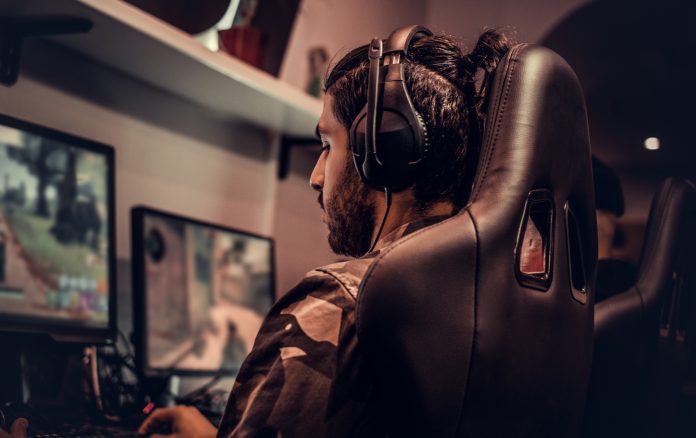Players of video games show enhanced brain activity – potentially giving them useful life tools in perceptual decision-making just from gaming
Frequent players of video games show superior sensorimotor decision-making skills and enhanced activity in key regions of the brain when compared to non-players.
Georgia State University researchers used functional magnetic resonance imaging (FMRI) which helped them discover that gaming could be a useful tool for training in perceptual decision-making.
“Video games are played by the overwhelming majority of our youth FOR more than three hours every week, but the beneficial effects on decision-making abilities and the brain are not exactly known.”
Video game players were faster and more accurate with their responses
The Georgia State research project involved 47 college-age participants, with 28 categorised as regular video game players and 19 as non-players.
The participants of the study laid inside an FMRI machine with a mirror that allowed them to see a cue immediately followed by a display of moving dots, where they were asked to press a button in their right or left hand to indicate the direction the dots were moving, or resist pressing either button if there was no directional movement.
Analysis of the resulting brain scans found that the differences were correlated with enhanced activity in certain parts of the brain, and there was no trade-off between speed and accuracy of response – the video game players were still better on both measures.
No trade-off between speed and accuracy of response
Lead researcher Mukesh Dhamala, associate professor in Georgia State’s Department of Physics and Astronomy and the university’s Neuroscience Institute, says: “Video games are played by the overwhelming majority of our youth more than three hours every week, but the beneficial effects on decision-making abilities and the brain are not exactly known.
“Our work provides some answers on that. Video game playing can effectively be used for training – for example, decision-making efficiency training and therapeutic interventions – once the relevant brain networks are identified.”
Gaming can increase hand-to-eye coordination and greater multi-tasking ability
The authors state: “These results indicate that video game playing potentially enhances several of the subprocesses for sensation, perception and mapping to action to improve decision-making skills.
“These findings begin to illuminate how video game playing alters the brain in order to improve task performance and their potential implications for increasing task-specific activity.”
“This lack of speed-accuracy trade-off would indicate video game playing as a good candidate for cognitive training as it pertains to decision-making.”











